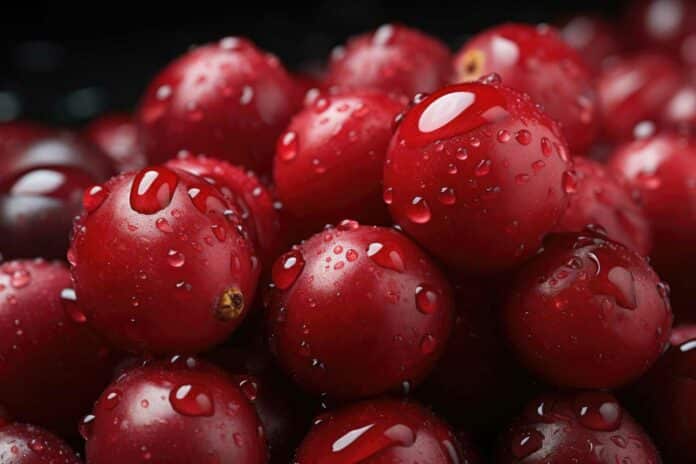Berries and cranberries are linked to several health advantages, mainly due to their high concentration of polyphenols or tannins. Additionally, they are enriched with fibers called oligosaccharides, which may be a factor in their bioactivity.
One more benefit of cranberry has been added to the list: Cranberry extracts improve intestinal microbiota and help prevent chronic diseases such as diabetes and cardiovascular diseases. These are the findings from the study of Université Laval and the Institute of Nutrition and Functional Foods (INAF).
The study showed that cranberry extract is enriched with polyphenols and oligosaccharides. These compounds boost the genus Bifidobacterium, which is associated with a reduced risk of diabetes and cardiometabolic diseases.
Jacob Lessard-Lord, a postdoctoral fellow at INAF, said, “Normally, these bacteria are stimulated by dietary fiber consumption. We observed the same effect with cranberry extract with a dose almost 20 times lower.”
Additionally, cranberry extracts activate the bacterium Akkermansia muciniphila, which is crucial to the intestinal mucosa and aids in lowering inflammation and fortifying the intestinal barrier.
This is very intriguing when it comes to mitigating the negative impacts of a Western diet. This diet alters the microbiota, inflames the mucosa, and weakens the intestinal barrier, which is essential for defending the body against microorganisms in the gut. Changes in the intestinal barrier significantly influence the development and progression of inflammation and metabolic illnesses. They permit the passage of lipopolysaccharides (LPS) derived by the intestinal microbiota and are known as metabolic endotoxemia.
Yves Desjardins, a professor at the Faculty of Agriculture and Food Sciences, said, “The constant inflammation that results from the presence of LPS in the body can lead to several chronic diseases, including diabetes and cardiovascular disease.”
Cranberry extracts could alter the inflammatory pathway and improve chronic disease prognosis when included in a well-balanced diet. By stimulating Bifidobacterium and Akkermansia muciniphila, the microbiota regenerates and restores an anti-inflammatory environment. This strengthens the bonds that hold the intestinal barrier’s cells together, reinforcing it.
The study involved almost 40 participants. All were instructed to consume a cranberry supplement in capsule form twice daily, morning and evening. This is equivalent to ingesting 60 grams of fresh cranberries.
Urine, plasma, and stool samples were collected during the start and four days after the experiment. Promising outcomes in the SHIME in vitro system, which replicates intestinal areas, prompted the beginning of the human trial.
In just four days, the cranberry extract, high in oligosaccharides and polyphenols, produced a significant bifidogenic impact and increased the number of butyrate-producing bacteria, including Clostridium and Anaerobutyricum. The cranberry extract also changed the profiles of plasmatic and fecal short-chain fatty acids, resulting in a rise in the butyrate ratio and a decrease in the acetate ratio.
Jacob Lessard-Lord enthusiastically said, “The research team is now interested in exploring the long-term effects of the extracts. “It’s promising to see a beneficial effect after just four days.”
All participants benefited from cranberries; however, the results showed variation in their answers. Subsequent studies will determine which bacterial signatures react most favorably to the extracts.
Journal Reference:
- Lessard-Lord, J., Roussel, C., Lupien-Meilleur, J. et al. Short-term supplementation with cranberry extract modulates gut microbiota in humans and displays a bifidogenic effect. npj Biofilms Microbiomes 10, 18 (2024). DOI: 10.1038/s41522-024-00493-w
